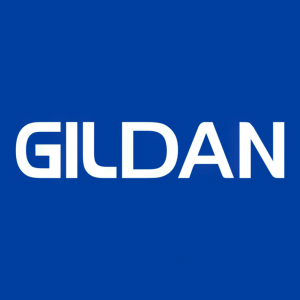Gildan Comments on Violations of US Antitrust Law by Browning West
Browning West’s rapid accumulation of Gildan shares last month violated the US Hart-Scott-Rodino Act
Browning West illegally acquired stake in order to take control of the Gildan Board and reinstall former Gildan CEO by requisitioning a special shareholders’ meeting
Illegal share acquisitions demonstrate short-term, reckless, and poorly planned nature of Browning West’s campaign
Gildan plans to take all appropriate actions to protect shareholders
MONTREAL, Jan. 21, 2024 (GLOBE NEWSWIRE) -- Gildan Activewear Inc. (GIL: TSX and NYSE) (“Gildan” or the “Company”) today announced that it has learned that Browning West, LP (“Browning West”) accumulated shares in violation of the United States Hart-Scott-Rodino Antitrust Improvements Act of 1976 (the “HSR Act”) as part of its misguided campaign to reinstall Glenn Chamandy as CEO of Gildan.
The HSR Act is a US antitrust statute that requires investors to notify the US Federal Trade Commission and US Department of Justice and comply with a 30-day waiting period before acquiring voting securities in excess of a certain ownership threshold. By acquiring shares in excess of the threshold without notifying these agencies and the Company, and without waiting 30 days to acquire the shares after providing notice, Browning West violated US law.
Browning West’s rapid and illegal share acquisitions were undertaken as a necessary part of its scheme to take control of the Company and its Board and reinstall Mr. Chamandy. Under the Canada Business Corporations Act, shareholders are entitled to requisition a special meeting of shareholders only if they hold over
Without the shares acquired in violation of the HSR Act, Browning West would have no legal rights to requisition a meeting. The Board intends to explore all avenues to ensure that shareholders are protected from Browning West’s illegal activity, potentially including notifications to applicable regulators and legal proceedings in the United States and Canada.
Gildan discovered Browning West’s violation of the HSR Act after it filed a Schedule 13D with the US Securities and Exchange Commission on January 8, 2024.
On Friday, January 19, 2024, Browning West informed the Company that it would be belatedly making its filing under the HSR Act but asserted that it was doing so “under protest”, in an ill-advised attempt to avoid responsibility for its failure to comply with law. By suggesting that its filing was made “under protest” Browning West simply compounds its errors and demonstrates both an unwillingness to take responsibility for its actions and the lack of competence to run a proxy fight let alone Gildan’s business.
Browning West’s illegal share acquisitions add to the many serious questions raised about the purpose, planning and prudence of Browning West’s campaign. Less than one week after Mr. Chamandy was removed by the Board, and after only a 15-minute meeting with the Chair of the Board, Browning West rushed so recklessly into reinstalling Mr. Chamandy that it violated US antitrust law. At this stage, questions remain about contacts between Browning West and Mr. Chamandy before and after his removal as CEO, contacts between Browning West and other investors, and whether these contacts violate Canadian and US securities laws. What is clear is that Browning West and Mr. Chamandy desire to seize control of Gildan as rapidly as possible, and it appears they will step over the law to do so.
The Board will continue to take all appropriate actions to protect shareholder value, including ensuring that all shareholders play by the same rules.
Caution Concerning Forward-Looking Statements
Certain statements included in this press release constitute “forward-looking statements” within the meaning of the US Private Securities Litigation Reform Act of 1995 and Canadian securities legislation and regulations and are subject to important risks, uncertainties, and assumptions. This forward-looking information includes, amongst others, information with respect to our objectives and strategies. Forward-looking statements generally can be identified by the use of conditional or forward-looking terminology such as “may”, “will”, “expect”, “intend”, “estimate”, “project”, “assume”, “anticipate”, “plan”, “foresee”, “believe”, or “continue”, or the negatives of these terms or variations of them or similar terminology. We refer you to the Company’s filings with the Canadian securities regulatory authorities and the US Securities and Exchange Commission, as well as the risks described under the “Financial risk management”, “Critical accounting estimates and judgments”, and “Risks and uncertainties” sections of our most recent Management’s Discussion and Analysis for a discussion of the various factors that may affect these forward-looking statements. Material factors and assumptions that were applied in drawing a conclusion or making a forecast or projection are also set out throughout such document.
Forward-looking information is inherently uncertain and the results or events predicted in such forward-looking information may differ materially from actual results or events. Material factors, which could cause actual results or events to differ materially from a conclusion or projection in such forward-looking information, include, but are not limited to changes in general economic and financial conditions globally or in one or more of the markets we serve and our ability to implement our growth strategies and plans. These factors may cause the Company’s actual performance in future periods to differ materially from any estimates or projections of future performance expressed or implied by the forward-looking statements included in this press release.
There can be no assurance that the expectations represented by our forward-looking statements will prove to be correct. The purpose of the forward-looking statements is to provide the reader with a description of management’s expectations regarding the Company’s future financial performance and may not be appropriate for other purposes. Furthermore, unless otherwise stated, the forward-looking statements contained in this press release are made as of the date hereof, and we do not undertake any obligation to update publicly or to revise any of the included forward-looking statements, whether as a result of new information, future events, or otherwise unless required by applicable legislation or regulation. The forward-looking statements contained in this press release are expressly qualified by this cautionary statement.
About Gildan
Gildan is a leading manufacturer of everyday basic apparel. The Company’s product offering includes activewear, underwear and socks, sold to a broad range of customers, including wholesale distributors, screenprinters or embellishers, as well as to retailers that sell to consumers through their physical stores and/or e-commerce platforms and to global lifestyle brand companies. The Company markets its products in North America, Europe, Asia Pacific, and Latin America, under a diversified portfolio of Company-owned brands including Gildan®, American Apparel®, Comfort Colors®, GOLDTOE®, Peds®, in addition to the Under Armour® brand through a sock licensing agreement providing exclusive distribution rights in the United States and Canada.
Gildan owns and operates vertically integrated, large-scale manufacturing facilities which are primarily located in Central America, the Caribbean, North America, and Bangladesh. Gildan operates with a strong commitment to industry-leading labour, environmental and governance practices throughout its supply chain in accordance with its comprehensive ESG program embedded in the Company’s long-term business strategy. More information about the Company and its ESG practices and initiatives can be found at www.gildancorp.com.








